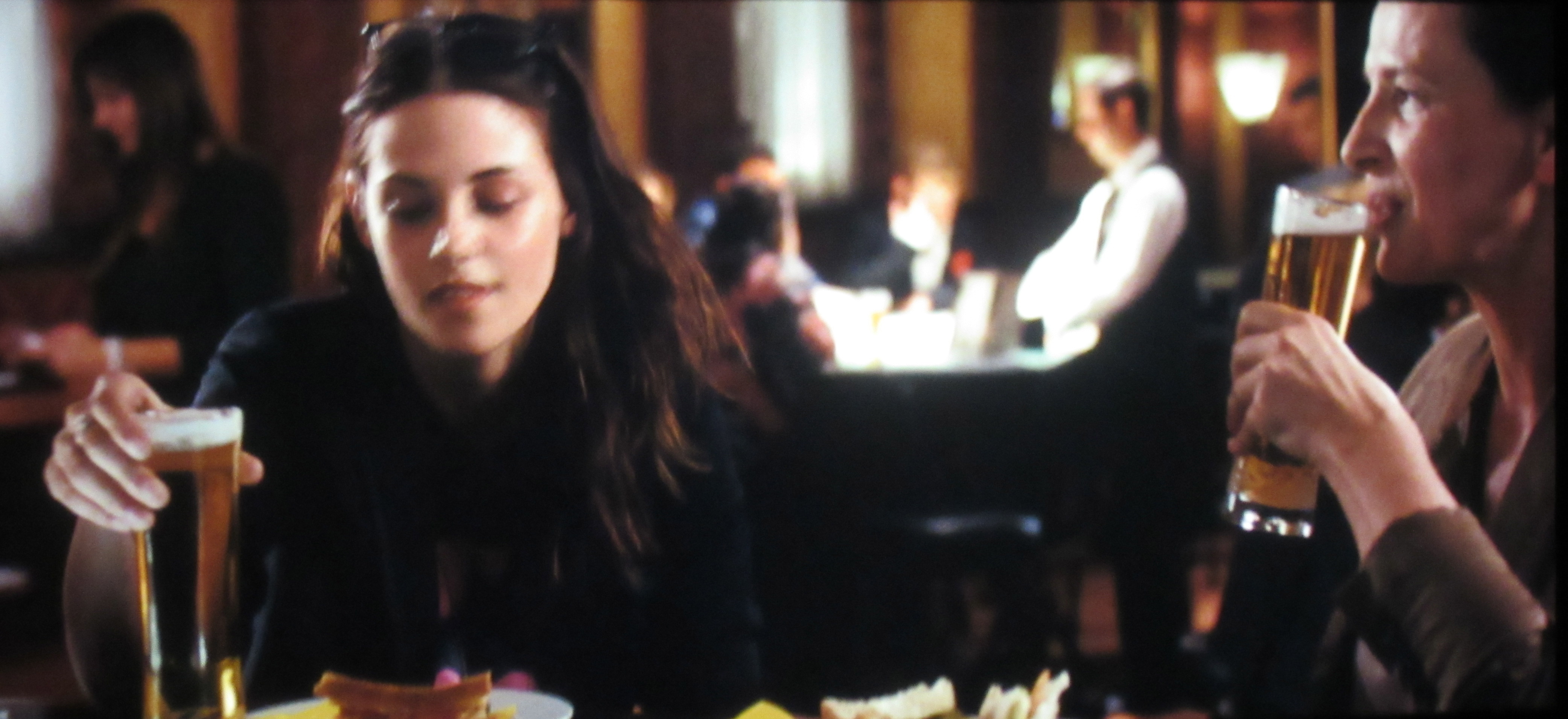In CLOUDS OF SILS MARIA the personal assistant played by Kristen Stewart holds the life together of the famous actor played by Juliette Binoche. It is admittedly surprising to realize, upon reflection, that Stewart herself, a good but still developing actor, also holds the film together, even though Binoche is, including in this film, among the greatest of international actors. Partly it is because Stewart’s role is central, which the film uses to haunting effect at a key moment, but also of the great casualness of Stewart’s acting, an insouciance that makes her something of an intermediary between the film and the audience. If our eyes wish to roll, she rolls them for us; if we want to say to Binoche, “Come on!,” she, in effect, says it for us.
This is a film about the normalcy that many of the famous came from, with which they still would lead their lives, and the impossibility of their doing so. Faced with this reality, the famous adopt normalcy as a role. Stewart is Binoche’s link to the norm she will never regain, to artistic satisfaction and human connection untainted by fame. That I use the actors’ names instead of the characters’ is a symptom of the reality that Olivier Assayas‘ film reflects and critiques. It is microcosmic not just of the life of acting but of the acting of life. It’s about how lives are thought of as stories, of emotional expression as dramatic outburst, of things that happen as plot, behavior as motivated act.
In fact events have retrospective significance and motive is fluid and not easy to ascribe. CLOUDS OF SILS MARIA lays the dialogue of a play in rehearsal atop the lives of Stewart and Binoche, and as they speak its lines (Stewart running cues) the fictional and the actual relationship between the two are hard to distinguish. They are surrounded by a trancelike environment, in which meteorological occurrences (clouds snaking through the canyons of Switzerland) have a symbolic resonance that contravenes the culture they intrude upon. Life in the Alpine redoubt of Sils Maria is upscale and trendy, signifying class, privilege and leisure, which don’t congeal into the normal that Binoche craves. As Stewart and Binoche speak the words of the play inside the dialogue of their lives, what intervenes is will, and how it can be exercised (Nietzsche is said to have spent time in Sils Maria). Do we choose whom we love or what we love to do? Can the actor depart from the script, the person from the life, the famed from the paparazzi? Is identity – sexual, social, generational, or professional – fungible or fixed? Is it possible, as the cliché has it, to “just walk away”?
CLOUDS OF SILS MARIA is profound in theme, novelistic in pace, cinematic in image, and, as experience, meditative. Stewart and Binoche, the cynical and the assured, the impetuous and the seasoned, the American and the European, stand in aesthetic, cultural and generational contrast. When Chloë Grace Moritz, younger still than Stewart, comes on as an up-and-coming, commercially hot star, Stewart seems to synthesize a dialectic, the resistant Binoche opposite the entitled arrogance that Moritz, herself an actor of real integrity, bravely takes on. What is astounding, in all of this, is that the film, although self-reflective of the art of acting, is not self-involved as cinema. This is partly because the premise is theatrical, rather than cinematic, although a contrast is drawn between the play Binoche is rehearsing and the hilariously cheesy movie that made the actor played by Moritz marketable. Assayas’ film is one to be contemplated and admired, no less in the three women who are its principals than for the permeation of its art with the scenarios of life and the mysteries of identity.
Check listings for viewing options.

One response to “Clouds of Sils Maria”
[…] is a great film by Olivier Assayas and Kristen Stewart is great in it. It follows upon Assayas’ Clouds of Sils Maria, also with Stewart, a great film too and parallel in structure. PERSONAL SHOPPER swaps out the […]